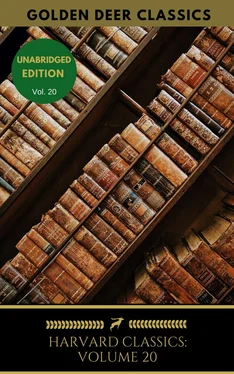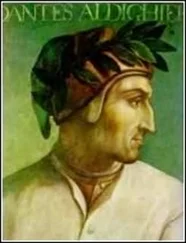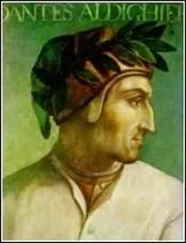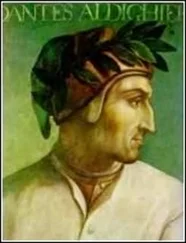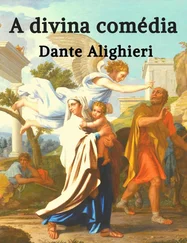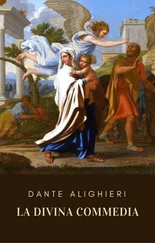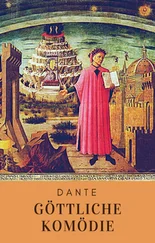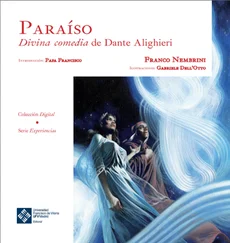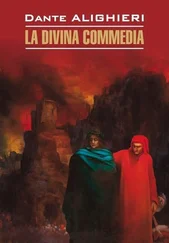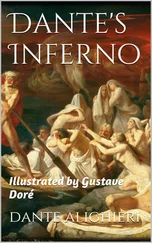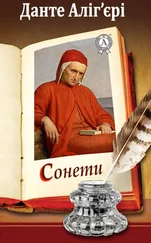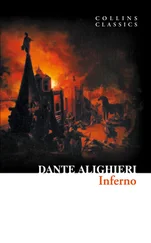Array Dante Alighieri - Harvard Classics Volume 20
Здесь есть возможность читать онлайн «Array Dante Alighieri - Harvard Classics Volume 20» — ознакомительный отрывок электронной книги совершенно бесплатно, а после прочтения отрывка купить полную версию. В некоторых случаях можно слушать аудио, скачать через торрент в формате fb2 и присутствует краткое содержание. Жанр: unrecognised, на английском языке. Описание произведения, (предисловие) а так же отзывы посетителей доступны на портале библиотеки ЛибКат.
- Название:Harvard Classics Volume 20
- Автор:
- Жанр:
- Год:неизвестен
- ISBN:нет данных
- Рейтинг книги:5 / 5. Голосов: 1
-
Избранное:Добавить в избранное
- Отзывы:
-
Ваша оценка:
- 100
- 1
- 2
- 3
- 4
- 5
Harvard Classics Volume 20: краткое содержание, описание и аннотация
Предлагаем к чтению аннотацию, описание, краткое содержание или предисловие (зависит от того, что написал сам автор книги «Harvard Classics Volume 20»). Если вы не нашли необходимую информацию о книге — напишите в комментариях, мы постараемся отыскать её.
1. The Divine Comedy, by Dante Alighieri
Also available:
The Complete Harvard Classics Collection (51 Volumes + The Harvard Classic Shelf Of Fiction)
50 Masterpieces You Have To Read Before You Die (Golden Deer Classics)
Harvard Classics Volume 20 — читать онлайн ознакомительный отрывок
Ниже представлен текст книги, разбитый по страницам. Система сохранения места последней прочитанной страницы, позволяет с удобством читать онлайн бесплатно книгу «Harvard Classics Volume 20», без необходимости каждый раз заново искать на чём Вы остановились. Поставьте закладку, и сможете в любой момент перейти на страницу, на которой закончили чтение.
Интервал:
Закладка:
A lake there lies, at foot of that proud Alp
That o’er the Tyrol locks Germania in,
Its name Benacus, from whose ample breast
A thousand springs, methinks, and more, between
Camonica and Garda, issuing forth,
Water the Apennine. There is a spot [140]
At midway of that lake, where he who bears
Of Trento’s flock the pastoral staff, with him
Of Brescia, and the Veronese, might each
Passing that way his benediction give.
A garrison of goodly site and strong
Peschiera [141]stands, to awe with front opposed
The Bergamese and Brescian, whence the shore
More slope each way descends. There, whatsoe’er
Benacus’ bosom holds not, tumbling o’er
Down falls, and winds a river flood beneath
Through the green pastures. Soon as in his course
The stream makes head, Benacus then no more
They call the name, but Mincius, till at last
Reaching Governo, into Po he falls.
Not far his course hath run, when a wide flat
It finds, which overstretching as a marsh
It covers, pestilent in summer oft.
Hence journeying, the savage maiden saw
Midst of the fen a territory waste
And naked of inhabitants. To shun
All human converse, here she with her slaves,
Plying her arts, remain’d, and liv’d, and left
Her body tenantless. Thenceforth the tribes,
Who round were scatter’d, gathering to that place,
Assembled; for its strength was great, enclosed
On all parts by the fen. On those dead bones
They rear’d themselves a city, for her sake
Calling it Mantua, who first chose the spot,
Nor ask’d another omen for the name;
Wherein more numerous the people dwelt,
Ere Casalodi’s madness [142]by deceit
Was wronged of Pinamonte. If thou hear
Henceforth another origin assign’d
Of that my country, I forewarn thee now,
That falsehood none beguile thee of the truth.”
I answer’d, “Teacher, I conclude thy words
So certain, that all else shall be to me
As embers lacking life. But now of these,
Who here proceed, instruct me, if thou see
Any that merit more especial note.
For thereon is my mind alone intent.”
He straight replied: “That spirit, from whose cheek
The beard sweeps o’er his shoulders brown, what time
Græcia was emptied of her males, that scarce
The cradles were supplied, the seer was he
In Aulis, who with Calchas gave the sign
When first to cut the cable. Him they named
Eurypilus: so sings my tragic strain,
In which majestic measure well thou know’st,
Who know’st it all. That other, round the loins
So slender of his shape, was Michael Scot, [143]
Practised in every slight of magic wile.
“Guido Bonatti [144]see: Asdente mark, [145]
Who now were willing he had tended still
The thread and cordwain, and too late repents.
“See next the wretches, who the needle left,
The shuttle and the spindle, and became
Diviners: baneful witcheries they wrought
With images and herbs. But onward now:
For now doth Cain with fork of thorns [146]confine
On either hemisphere, touching the wave
Beneath the towers of Seville. Yesternight
The moon was round. Thou mayst remember well:
For she good service did thee in the gloom
Of the deep wood.” This said, both onward moved.
Canto XXI
Argument.—Still in the eighth circle, which bears the name of Malebolge, they look down from the bridge that passes over its fifth gulf, upon the barterers or public peculators. These are plunged in a lake of boiling pitch, and guarded by Demons, to whom Virgil, leaving Dante apart, presents himself; and license being obtained to pass onward, both pursue their way.
Thus we from bridge to bridge, with other talk,
The which my drama cares not to rehearse,
Pass’d on; and to the summit reaching, stood
To view another gap, within the round
Of Malebolge, other bootless pangs.
Marvellous darkness shadow’d o’er the place.
In the Venetians’ arsenal as boils
Through wintry months tenacious pitch, to smear
Their unsound vessels; for the inclement time
Seafaring men restrains, and in that while
His bark one builds anew, another stops
The ribs of his that hath made many a voyage,
One hammers at the prow, one at the poop,
This shapeth oars, that other cables twirls,
The mizzen one repairs, and main-sail rent;
So, not by force of fire but art divine,
Boil’d here a glutinous thick mass, that round
Limed all the shore beneath. I that beheld,
But therein naught distinguish’d, save the bubbles
Raised by the boiling, and one mighty swell
Heave, and by turns subsiding fall. While there
I fix’d my ken below, “Mark! mark!” my guide
Exclaiming, drew me toward him from the place
Wherein I stood. I turn’d myself, as one
Impatient to behold that which beheld
He needs must shun, whom sudden fear unmans,
That he his flight delays not for the view.
Behind me I discern’d a devil black,
That running up advanced along the rock.
Ah! what fierce cruelty his look bespake.
In act how bitter did he seem, with wings
Buoyant outstretch’d and feet of nimblest tread.
His shoulder, proudly eminent and sharp,
Was with a sinner charged; by either haunch
He held him, the foot’s sinew griping fast.
“Ye of our bridge!” he cried. “keen-talon’d fiends!
Lo! one of Santa Zita’s elders. Him
Whelm ye beneath, while I return for more.
That land hath store of such. All men are there,
Except Bonturo, barterers: of ‘no’
For lucre there an ‘ay’ is quickly made.”
Him dashing down, o’er the rough rock he turn’d;
Nor ever after thief a mastiff loosed
Sped with like eager haste. That other sank,
And forthwith writing to the surface rose.
But those dark demons, shrouded by the bridge,
Cried, “Here the hallow’d visage saves not: here
Is other swimming than in Serchio’s wave,
Wherefore, if thou desire we rend thee not,
Take heed thou mount not o’er the pitch.” This said,
They grappled him with more than hundred hooks,
And shouted: “Cover’d thou must sport thee here;
So, if thou canst, in secret mayst thou filch.”
E’en thus the cook bestirs him, with his grooms,
To thrust the flesh into the caldron down
With flesh-hooks, that it float not on the top.
Me then my guide bespake: “Lest they descry
That thou art here, behind a craggy rock
Bend low and screen thee: and whate’er of force
Be offer’d me, or insult, fear thou not;
For I am well advised, who have been erst
In the like fray.” Beyond the bridge’s head
Therewith he pass’d; and reaching the sixth pier,
Behoved him then a forehead terror-proof.
With storm and fury, as when dogs rush forth
Upon the poor man’s back, who suddenly
From whence he standeth makes his suit; so rush’d
Those from beneath the arch, and against him
Their weapons all they pointed. He, aloud:
“Be none of you outrageous: ere your tine
Dare seize me, come forth from amongst you one,
Who having heard my words, decide he then
If he shall tear these limbs.” They shouted loud,
“Go, Malacoda!” Whereat one advanced,
The others standing firm, and as he came,
“What may this turn avail him?” he exclaim’d.
“Believest thou, Malacoda! I had come
Thus far from all your skirmishing secure,”
My teacher answer’d, “without will divine
And destiny propitious? Pass we then;
Читать дальшеИнтервал:
Закладка:
Похожие книги на «Harvard Classics Volume 20»
Представляем Вашему вниманию похожие книги на «Harvard Classics Volume 20» списком для выбора. Мы отобрали схожую по названию и смыслу литературу в надежде предоставить читателям больше вариантов отыскать новые, интересные, ещё непрочитанные произведения.
Обсуждение, отзывы о книге «Harvard Classics Volume 20» и просто собственные мнения читателей. Оставьте ваши комментарии, напишите, что Вы думаете о произведении, его смысле или главных героях. Укажите что конкретно понравилось, а что нет, и почему Вы так считаете.
